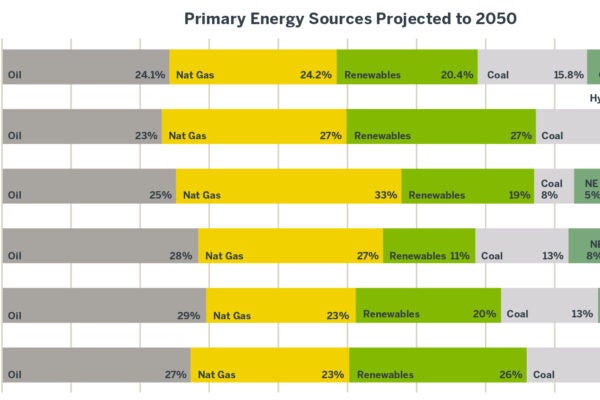Paper Wins Prestigious JAMS Award
Texas McCombs faculty member honored for article on AI for social good

A paper demonstrating how companies can use artificial intelligence to enhance customer well-being has won the 2024 Jagdish N. Sheth Best JAMS Article Award. Co-authored by Texas McCombs Assistant Professor of Marketing Gizem Yalcin Williams, the article was published in November 2024 in the Journal of the Academy of Marketing Science (JAMS), one of the world’s top business journals.
The annual award recognizes the authors of the most outstanding paper published in JAMS, selected by the journal’s editorial review board from a short list of 12 finalists.
“Gizem is rapidly emerging as a thought leader at the intersection of AI and consumer behavior,” said Raghunath Rao, professor of marketing and chair of the McCombs Department of Marketing. “This recognition is a testament to her impactful and timely scholarship.”
Williams co-authored the winning article, “Deploying Artificial Intelligence in Services to AID Vulnerable Consumers,” with Stefano Puntoni of the University of Pennsylvania’s Wharton School and Erik Hermann of ESCP Business School.
The paper builds on findings from consumer vulnerability research, AI for social good, and service marketing. It introduces the AID framework — accessible, interactive, and dynamic — for designing AI technologies that make services more accessible, optimize customer experiences interactively, and dynamically improve consumer decision-making.
“We introduce a framework that uses AI to identify vulnerable consumers and address their specific needs,” Williams said. “In doing so, we provide businesses with a road map to harness the power of AI in adopting more socially responsible practices.
“So far, much of the focus in both industry and academia has been on how to make AI more effective, efficient, and profitable. That’s understandable, especially from a business perspective, where the goal is often to increase sales and reduce operational costs,” she said.
Williams and her co-authors go a step further. Their paper shifts the conversation toward aligning AI-driven service innovation with principles of equity, inclusion, and social good. They explore how to leverage AI technologies to detect, better serve, and empower vulnerable consumers.
Vulnerability is often associated with physical or cognitive limitations that compromise judgment. But it’s also a dynamic state, Williams said. For example, on any given day, a customer may experience emotional distress over a personal matter that affects their ability to communicate their needs to a customer service agent or make a well-informed decision. AI can provide agents with cues based on real-time analysis of consumer chat responses to provide an effective solution.
Williams plans to continue exploring how AI can positively impact consumers and companies by promoting meaningful, socially responsible practices.
“My ongoing projects focus on better understanding how people use AI and the downstream consequences of these interactions, such as how AI affects our performance, knowledge, confidence, and self-perception,” she said.
Story by Sally Parker
About this Post
Share:


